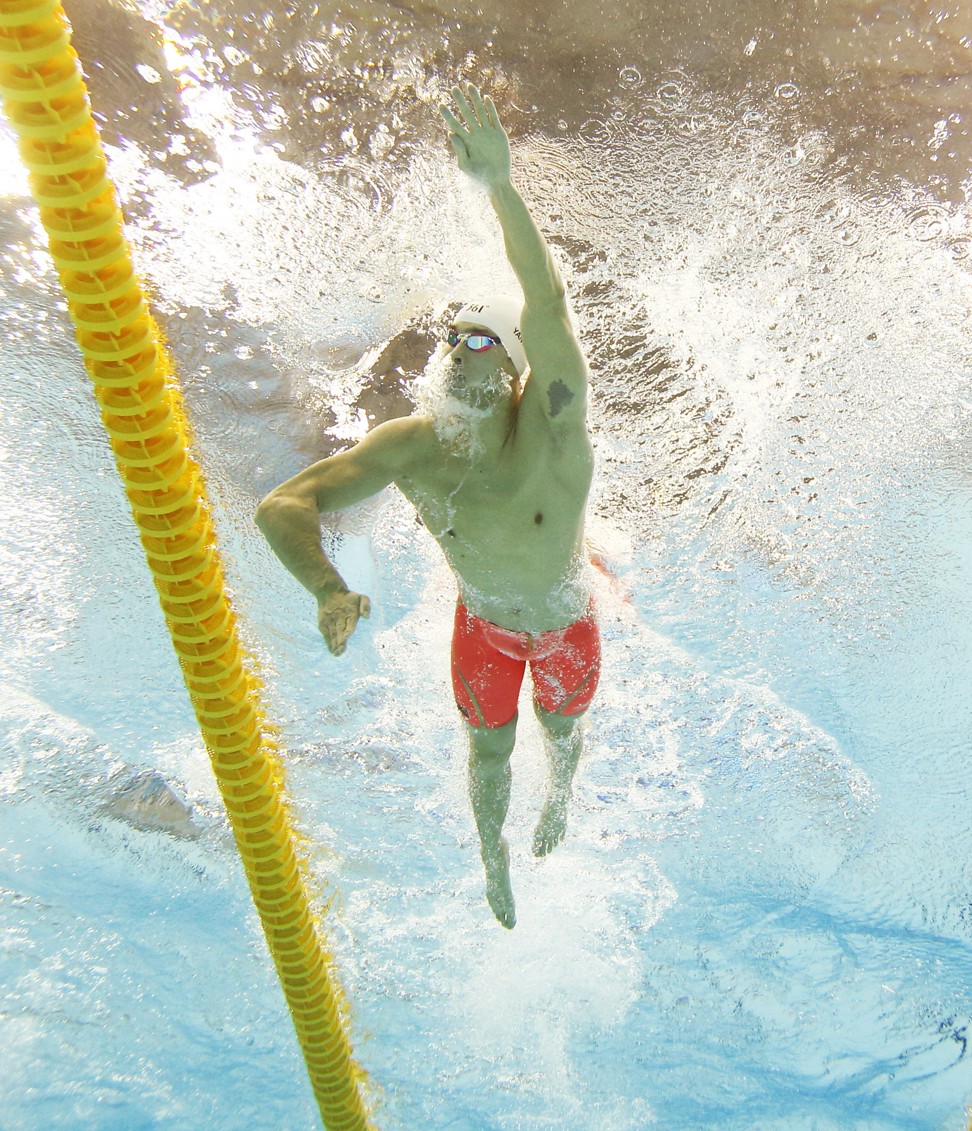
There’s nothing quite like the wrath of China’s social media trolls.
Descending on an account like an angry hive of bees, they pepper victims with relentless attacks in broken English, rife with Chinese flags, exclamation marks and all caps. Just ask Australian basketball star Andrew Bogut, one of the most notable on an ever-growing list. Bogut, who famously tweeted “Swimmers who medal vs Sun Yang should break the podiums with hammers”, got blindsided in a textbook case of online retaliation.
Bogut, 35, was the recipient of some fairly vile, despicable attacks, which included death threats and sexual assault threats against his wife and child. Of course, how can we forget Houston Rockets general manager Daryl Morey, who ignited an international diplomatic crisis by simply hitting the retweet button? The scorn directed at him forced him into hiding, not only online, but in the real world, as a cascade of negativity descended down upon him for seven words: “Fight for freedom, stand with Hong Kong”.
One of the fascinating studies done on China’s notorious “50-cent gang” (wu mao dang) of government-backed internet warriors is a 2017 paper published in the American Political Science Review, which specifically outlines the network the government utilises to plan and coordinate attacks on people who speak ill against the political establishment.

Named after the amount of cash users reportedly get (although proven false in the study), the gigantic apparatus the government created is staggering. Co-authored by a Harvard professor, and one from Stanford and the University of California, San Diego, the paper outlines the vast network the Chinese government employs when it comes to influencing social media opinion.
The study estimates “the Chinese government has long been suspected of hiring as many as 2 million people to surreptitiously insert huge numbers of pseudonymous and other deceptive writings into the stream of social media posts, as if they were the genuine opinions of ordinary people”.
Further, back in 2017, the study estimates “that the government fabricates and posts about 448 million social media comments a year”, which are run through central offices and are then echoed out, amassing a staggering “80 billion total posts on commercial social media sites”.
This spiderweb of online soldiers has an array of targets both large and small – from quashing dissenting opinion on the Uygur ethnic minority to the ongoing coronavirus crisis. The posts are relentless, coordinated “mass bombings” of social media accounts against journalists, politicians, activists and even in some cases, regular people who posted the wrong thing at the wrong time on the wrong site. Like strategic online warfare, it is a sight to see first-hand as it rolls out, digitised blitzkriegs.
This is why the developments concerning Chinese swimmer Sun Yang are so odd and perplexing. As the full Court of Arbitration for Sport ruling was released on Thursday, a 78-page report that showcases a sustained history of deceit by Sun which included everything from witness tampering and a refusal to admit contrition, public opinion has now largely galvanised itself squarely in one camp.

This is nothing new in the Western world, but to see it happen within China is a whole different ball game. In an about face that seems as if it could have been orchestrated, Chinese social media users on Weibo and other platforms such as Sina Sports have now turned on their king swimmer.
Australian Mack Horton, the target of attacks since 2014, had his latest Instagram posts flooded with apologies from Chinese accounts that are highly suspicious. If this seems odd, don’t worry, you are not alone, it is very odd.
One can only theorise what is actually going on. Chinese newspapers have widely published the ruling in various outlets. As many know, state-run media is great at whitewashing news stories.

The Hong Kong anti-government protests are a great example. If you were to get your news from Chinese media sources, you would probably summarise the unrest is waged by a minority group of hooligan citizens hell bent on nothing more than trying to shame the great nation of China and create anarchy.
Why then, has Sun been cast off this ship, no longer sheltered and backed by his army of followers? One has to wonder if the coronavirus crisis, which has caused major headaches for government officials as they try to quell dissent at home and influence public opinion abroad, has something to do with this.
Has China abandoned the former swimming star, knowing there are far more important public relations wars they need to fight right now? They gain nothing by continuing to support him, he will never swim again competitively and no longer serves them any purpose other than reminding them of his now proven transgressions.
Or, more innocuously, have many Chinese supporters of Sun suddenly waken up to the truth after reading the full report, and found out their golden boy is not so golden after all? Is this an organic reckoning, or a “50-cent gang” orchestrated flip to serve political purposes?
Of course, this is all conjecture, as you never fully know what goes on behind the Great Firewall. Suffice it to say, this about-face against China’s once seemingly bulletproof king of the pool is as fascinating as it is perplexing.







